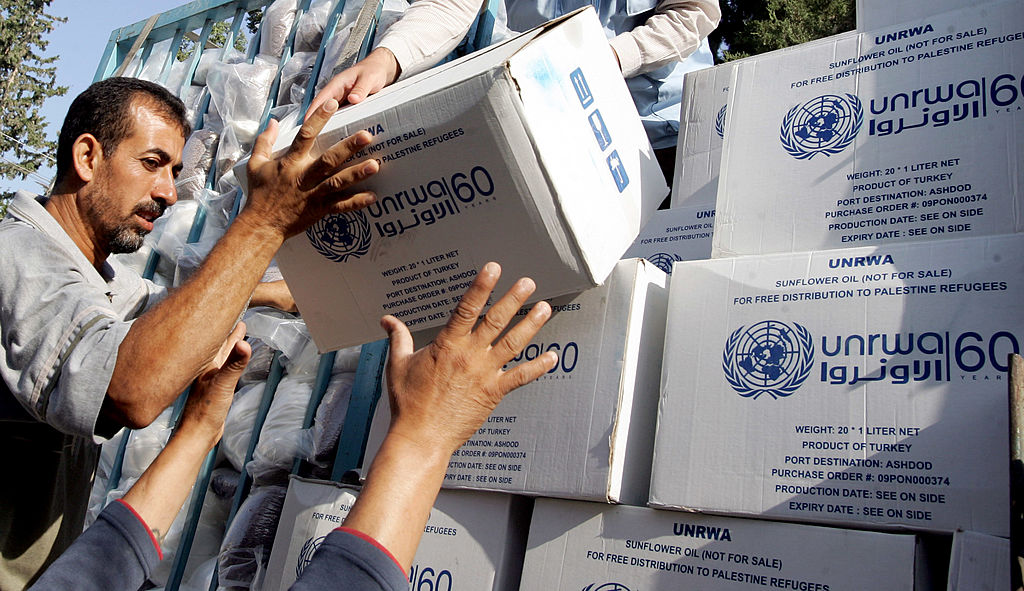Before 7 October last year, observers had long suspected an uncomfortable symbiosis between UNRWA, the UN organisation tasked with organising aid to the unfortunate Palestinians of the Gaza Strip, and the autocratic Hamas government in control in Gaza city. The attack on Israel on that day certainly didn’t dispel these suspicions, and in January this year Israel alleged that a number of UNRWA staff had been implicated. Seventeen countries paused funding for UNRWA, including the US, Australia, Canada, Japan, the EU and several individual European states. So did the UK, which last year had provided about £35 million.
The UK, which had said it would await the Colonna report before making a decision, will now face immense pressure to resume payments
Will this funding come back? Some has already been re-pledged (for example, by Australia, Canada and the EU), but a number of donors, including the UK and the US, remain holdouts. The UN hopes that this state of financial embarrassment will not last long. Its spirits will have been buoyed after a report it had sponsored was published yesterday, by Catherine Colonna, a former French foreign minister, which concludes that Israel has not yet provided proof of its allegations, though it admits to problems of impartiality and recommends some administrative improvements to avoid them in future.
The UK, which had said it would await the Colonna report before making a decision, will now face immense pressure to resume payments. A group of 50 MPs from all parties had already demanded this last month even before the report appeared. In the absence of any finding from Mme Colonna of a smoking gun, it will now face more.
David Cameron at the Foreign Office should nevertheless tread very carefully.
First, note the limitations of the report. On Colonna’s own admission, for example, it was not within the mandate of her committee to examine the actual evidence against individual employees in connection with October 7. Rather, she was appointed to deal with matters of fairly dry administrative process. In the words of its own executive summary, the group she chaired was set up ‘to assess whether UNRWA is doing everything within its power to ensure neutrality and respond to allegations of serious neutrality breaches when they are made, taking into account the… context in which it has to work, especially in Gaza, and to make recommendations for UNRWA to improve and strengthen in this area, if necessary.’
In other words, for all the fanfare this was in essence just an exercise in management due diligence. This is something largely borne out when you look at the report, which reads rather like the bland recommendations of a management consultancy. Its prescriptions include establishing ‘integrity briefings’ with donors, setting neutrality as a standing agenda item at a twice-yearly meeting, strengthening internal oversight capacity, requiring managers to assume more accountability for staff neutrality, strengthening UNRWA’s capacity to detect public expressions of staff views on social media that are not in accordance with staff regulations, and so on.
Worthy recommendations of this kind are all very well. Unfortunately, however, even if implemented, they give no guarantee that donor nations providing funds to UNRWA will actually see their money going to benefit the people of Gaza rather than being quietly siphoned off by agents of Hamas to promote the latter’s agenda. They look more like a convenient means for the well-paid international apparatchiks attached to the UN’s Gaza operation to say that they have ticked the correct boxes and followed the correct procedures, and as a result deny any responsibility for funds that end up being applied to nefarious purposes.
There is a further, related, point. When it comes to deciding whether money taken from UK taxpayers of modest means should once again go to UNRWA, management issues and the fact that no wrongdoing has up till now been proved is a side issue. The decision should depend simply on the judgment of the elected government of the UK as to whether the funds will actually go to the purpose they are intended for. And on this question management mechanisms are a start, but only a start. The proof of the pudding is in the eating. UNRWA has no right to the benefit of any doubt here. For its part, the UK government has every right, and indeed a duty to taxpayers, to wait until it is entirely satisfied that this compromised organisation can once again be trusted.
Meanwhile, what should our government do? There are clearly crying humanitarian needs to be met in Gaza which we cannot ignore. But unless and until we are sure that the UNRWA can be trusted to meet them, we should have no compunction in sending our money to the International Red Cross, or some other organisation. Of course we cannot know that this will necessarily be any more effective. But it would send a salutary message. We need to make it abundantly clear to UN-backed organisations like UNRWA that, however hard they try and however excellent the management systems they install, they are not guaranteed a single dollar from our taxpayers unless and until they have shown they can deliver. Until then, the fact that money they once thought themselves entitled to is going to someone else will, we hope, concentrate their minds.







Comments